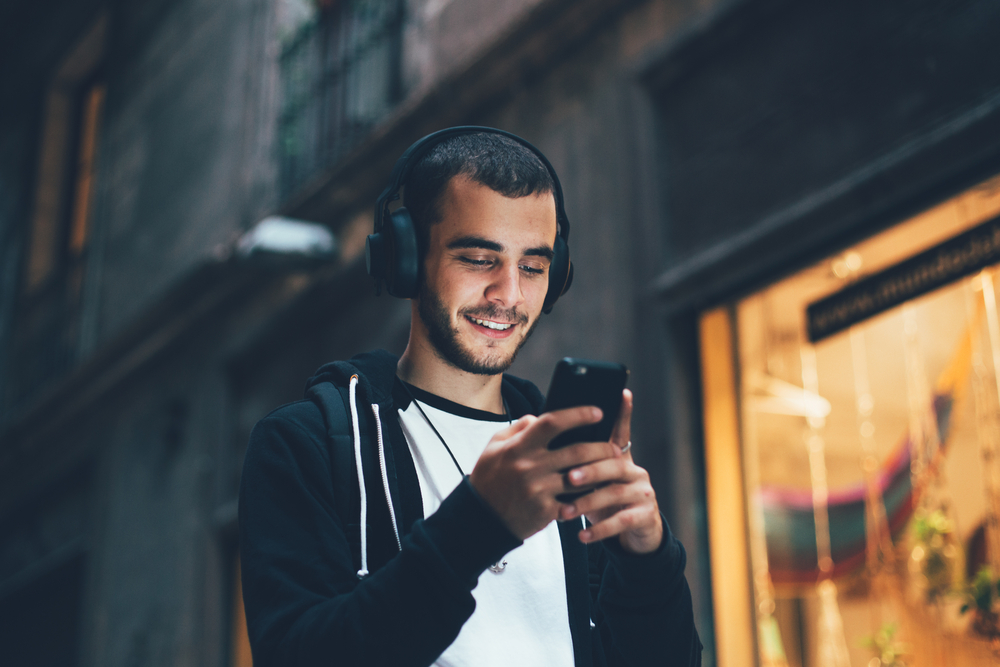
Say hello to James, a Say hello to music enthusiast who perfectly incorporates Spotify into his work regimen, switches to Pandora during his jogs, and curates playlists for every instance imaginable, from cardio programs to cooking and even gaming. His headphones are his constant partners, converting his life into a fully soundtracked experience. However, while James finds solace and joy in the immersive world of music, the very thing he treasures could be quietly damaging his precious sense of hearing.
There are safe ways to enjoy music and ways that are more hazardous to your hearing health. Sadly, many of us tend to gravitate towards the latter.
How does prolonged music exposure lead to hearing loss?
Extended exposure to loud music can result in a decrease in your auditory function. We’re used to thinking of hearing loss as an issue related to aging, but more and more research indicates that it’s actually the build-up of noise-related damage that is the issue here and not anything intrinsic in the process of aging.
Younger individuals are more sensitive to noise-induced harm as their ears are still in the developmental phase. However, teenagers tend to dismiss the possible dangers of excessive noise over time. So there’s an epidemic of younger people with hearing loss, thanks, in part, to rampant high-volume headphone usage.
Can one listen to music without any safety issues?
Unrestricted full volume is obviously the” dangerous” way to listen to music. There is a way to enjoy to music more safely, which typically means decreasing the volume. The suggested safe volume levels are typically as follows:
- Adults should limit their device listening time to 40 hours or less and make sure the volume stays below 80 dB.
- For Teens and Minors: You can still listen for 40 hours, but keep the volume level below 75 dB.
Breaking it down, you’re looking at roughly 5 hours and 40 minutes of listening every day. Although it may seem excessive, the time can go by unexpectedly fast. Even still, most individuals have a fairly strong concept of keeping track of time– it’s something we’re trained to do effectively from a really young age.
The more difficult aspect involves keeping track of your sound level. Devices like smartphones, computers, and TVs typically do not display volume in decibels. It’s gauged on some arbitrary scale. Maybe it’s 1-100. But maybe it’s 1-16. You might not have any idea what the max volume on your device is, or how close to the max you are.
Tips for effectively keeping track of your music volume
To deal with this problem, a number of free noise monitoring apps are available for both iPhone and Android devices. These apps offer instant feedback on ambient noise levels, allowing users to adjust their listening volume to safe levels.
That’s why most hearing specialists recommend the use of one of many free noise tracking apps. These apps– extensively available for both iPhone and Android devices– will give you real-time readouts on the noises surrounding you. In this manner, you can monitor the decibel level of your music as it plays and make adjustments as necessary.
Comparing relative volumes: from garbage disposals to dishwasher
For instance, a noise level of 80 decibels is similar to the sound generated by a basic garbage disposal or dishwasher – you can hear them, but they won’t blow your ears out. Acknowledging this benchmark is essential, as it represents the limit beyond which auditory damage becomes a substantial danger.
It’s crucial to exercise increased caution when noise levels surpass this critical point. Consider decreasing your exposure to extremely loud music by listening to specific songs at the highest volume rather than listening to entire albums.
Recurring exposure to elevated volume levels can lead to hearing problems including tinnitus and eventual hearing loss. By being mindful of when our ears venture into the danger zone, we enable ourselves to make educated decisions, with the ultimate goal of promoting safer listening practices.
Set up an appointment for a hearing evaluation
For better prioritization of your hearing health, it is recommended to consult a hearing professional to schedule a comprehensive hearing examination. Taking practical steps like regular screenings can pinpoint possible issues at an early stage, enabling quick actions and tailored advice to protect your valuable hearing.

